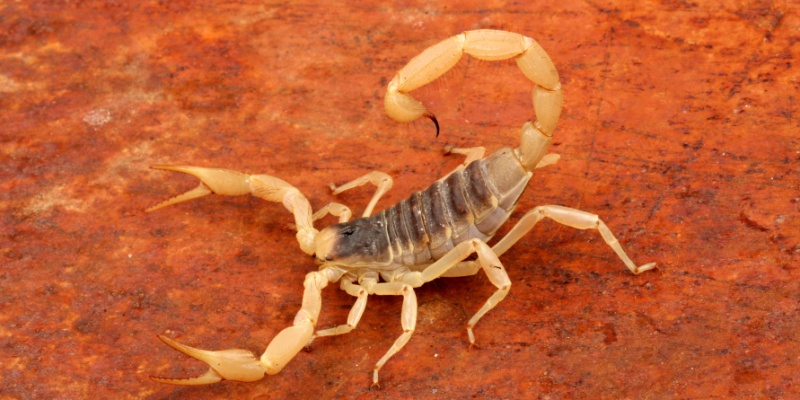Las Vegas is home to a thriving population of scorpions. Contrary to popular belief, the arid desert climate isn’t the only reason scorpions flourish here. Their success also stems from the city’s unique combination of warm temperatures, landscaping choices, and access to food sources. Here’s a closer look at why these arachnids find Las Vegas so appealing—and what you can do about it.
Desert Adaptations
Scorpions are naturally adapted to desert environments. Their exoskeleton helps them retain moisture, and they can slow down their metabolism to survive on minimal food. These traits make them particularly well-suited for the scorching Las Vegas summers.
Key Desert Adaptations:
- Ability to go long periods without food
- Preference for cool, dark hiding spots during the day
- Nocturnal hunting patterns, feeding on insects and other small prey
Warm Temperatures
Las Vegas experiences long stretches of hot weather, which scorpions love. They thrive in temperatures above 70°F and become especially active at night when it cools down slightly. Even during cooler months, scorpions find shelter in warm areas around structures, such as walls, attics, or cracks near heating ducts.
Water and Moisture Sources
While the desert is dry, urban landscapes in Las Vegas provide more moisture than one might expect. Irrigation systems for lawns, gardens, and golf courses create pockets of humidity. Water leaks, condensation from air conditioners, and pet water bowls also offer scorpions a much-needed moisture source.
Landscaping Choices
Homeowners often plant lush landscaping in an effort to create an oasis in the desert. However, dense shrubs, decorative rocks, and thick mulch can provide excellent hiding spots. Scorpions hide under rocks or in thick vegetation to escape the sun. When these features are close to the house, it increases the likelihood of scorpions finding their way indoors.
Landscaping Tips:
- Keep shrubs and trees trimmed away from exterior walls.
- Use gravel or river rock instead of thick mulch.
- Avoid placing decorative rocks or wood piles directly against the foundation.
Insect Populations
Scorpions feed on insects like crickets, roaches, and even other arachnids. In a bustling city like Las Vegas, these prey species are abundant. In turn, a plentiful food supply supports a robust scorpion population. By controlling insects on your property, you make your home less appealing to scorpions.
Outdoor Lighting
Bright exterior lights attract insects, which then attract scorpions looking for an easy meal. Some homeowners switch to yellow or sodium vapor lights to reduce insect activity around the house.
Entry Points into Homes
It’s not unusual to find scorpions in garages, bathrooms, or kitchens, especially if there are gaps in doors, windows, or vents. Sealing these potential entry points can reduce the number of scorpions venturing indoors.
Sealing Tips:
- Install door sweeps and weatherstripping.
- Use caulk around windows and utility lines.
- Repair damaged screens on windows and vents.
Why Professional Pest Control Helps
Scorpions are resilient creatures, and DIY methods can only do so much. Professional pest control technicians have the experience to identify hidden nesting areas and apply targeted treatments. They can also recommend structural modifications and landscaping adjustments to reduce scorpion-friendly conditions.
Scorpions thrive in Las Vegas for several reasons: warm temperatures, ample hiding spots, a steady food source, and enough moisture to survive. By understanding these factors and making strategic choices—such as modifying landscaping, sealing entry points, and controlling insect populations—you can lower your risk of encountering these arachnids in your home. For more comprehensive or persistent issues, a professional pest control service can be invaluable in safeguarding your property against scorpions year-round.
